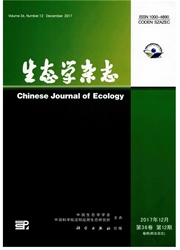
欢迎您!东篱公司
退出

 中文摘要:
中文摘要:
PCR-变性梯度凝胶电泳(PCR-DGGE)具有可靠性强、重复性好、方便快捷等优点,已被广泛应用于环境生态学中微生物群落多样性、动态性分析和功能细菌的跟踪。本文综述了PCR-DGGE技术的基本原理,不同DNA提取方法的比较,不同PCR方式的比较及其在环境生态学中研究微生物群落多样性、环境中微生物群落变化的动态监测、硝化菌-反硝化菌和硫酸还原菌(SRB)的动态分析和监测等领域中的应用,并对该技术自身存在的局限性和应用前景进行了评价。
 英文摘要:
英文摘要:
PCR-denaturing gradient gel electrophoresis (PCR-DGGE) has the advantages of high reliability,good repetition and easy operation,and been widely used in environmental ecology to analyze the diversity and dynamics of microbial communities,and to monitor functional bacteria. This paper introduced the principles and methods of PCR-DGGE,reviewed its application in environmental ecological study,and analyzed its potential application prospects and limitations.
 同期刊论文项目
同期刊论文项目
 同项目期刊论文
同项目期刊论文
 期刊信息
期刊信息
